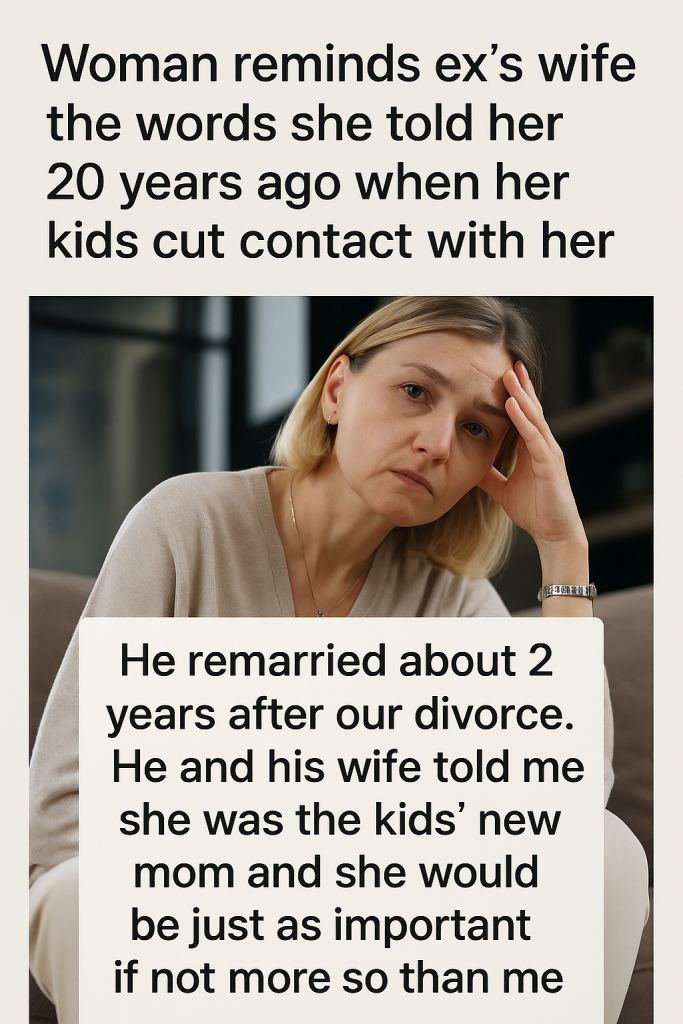In a poignant and unexpected social media post, a woman recently reminded her ex-husband’s current wife of a statement she made two decades ago—words that have resurfaced amid a painful family estrangement involving their children. The story sheds light on the complicated emotional fallout when families experience fractured relationships following divorce and remarriage.
According to the woman, who shared her experience online, her ex-husband remarried approximately two years after their divorce. Over the years, tensions grew as their children slowly distanced themselves from their father, eventually ceasing contact altogether. It was this hurtful silence that motivated her to reach out to the new wife, reminding her of a message she herself had delivered to that woman 20 years earlier.
The memory centers on a conversation where, amid the upheaval of a blended family, the new wife was advised about the delicacy required when dealing with children caught between the dynamics of a new marriage and loyalty to their biological mother. The woman’s message, reflecting a deep understanding of the emotional complexity involved, emphasized patience, respect, and open communication—qualities often overlooked in fractured family relationships.
“He remarried about two years after our divorce,” the woman recounted. “When our kids started pulling away from him, I reminded her of what I told her back then—but it seems those words were forgotten.”
The post has struck a chord with many social media users, sparking widespread discussion about long-term consequences of remarriage on children and the responsibilities of new spouses in supporting healthy family dynamics. Psychologists specializing in family counseling emphasize that when children lose contact with a parent, especially after remarriage, it often results from complex feelings of abandonment, divided loyalties, or unresolved grief rather than simple defiance.
Experts suggest that new spouses play a crucial role as mediators who can facilitate dialogue and provide emotional stability. “Reminding someone of advice given long ago highlights how these family patterns persist,” one expert explained. “It’s a wake-up call that communication and empathy must be ongoing efforts, not just words said in passing.”
The emotional weight of this story lies not only in the estrangement itself but in the woman’s call for accountability and reflection. By revisiting words spoken two decades prior, she underscores the long-lasting impact of choices made during and after divorce—especially on children caught in the middle.
Many readers responded to the post by sharing their own experiences with blended families struggling to maintain bonds, a testament to the universality of such challenges. The conversation also opened up broader reflections on forgiveness, co-parenting, and the evolving nature of family relationships over time.
As blended families continue to become more common, this story serves as a powerful reminder of the delicate balance required to nurture trust and connection—not just immediately after remarriage, but across generations.
Whether this striking reminder will lead to reconciliation remains uncertain, but the woman’s message resounds with a timeless truth for anyone navigating the complexities of family and divorce: The words we speak can echo for decades, sometimes becoming the bridge to healing we all desperately need.



